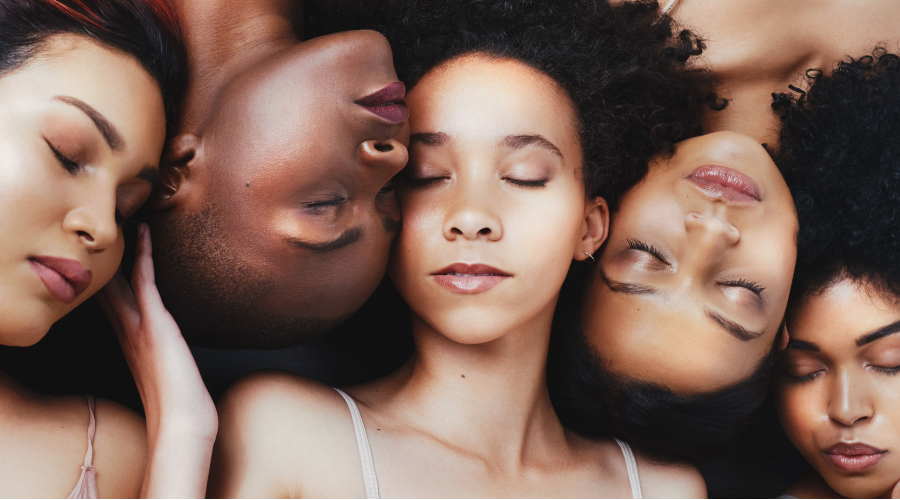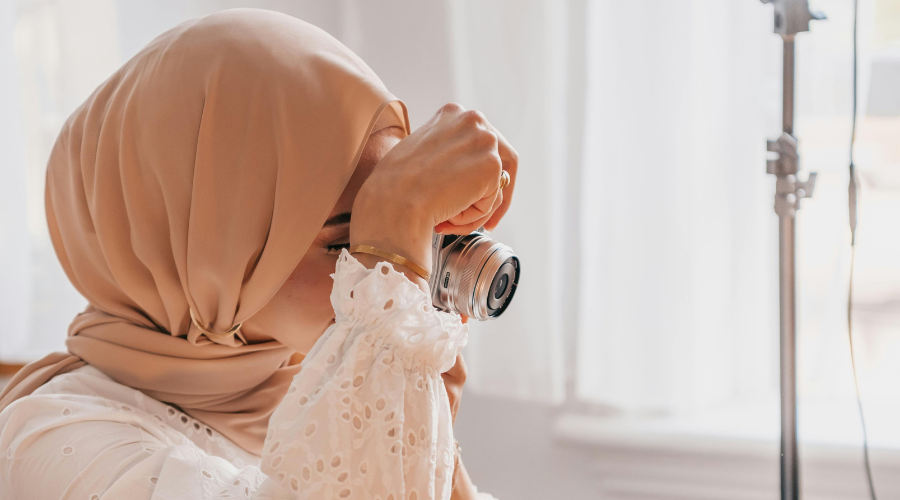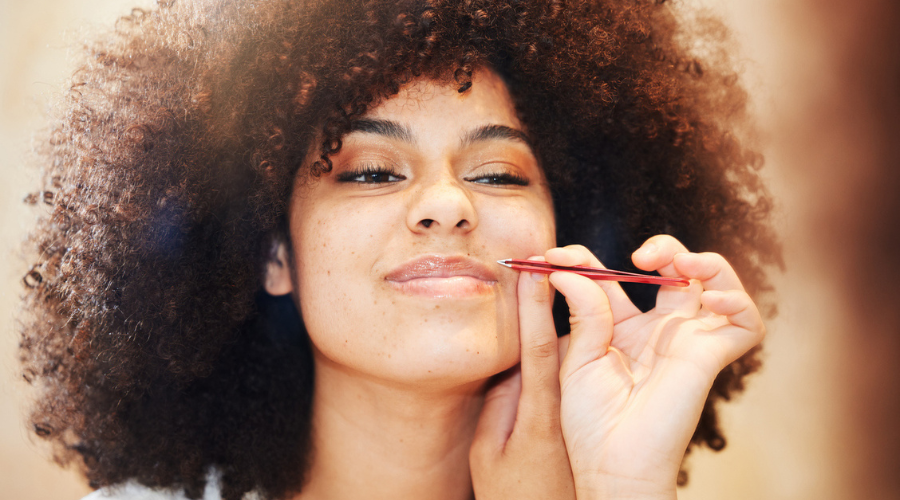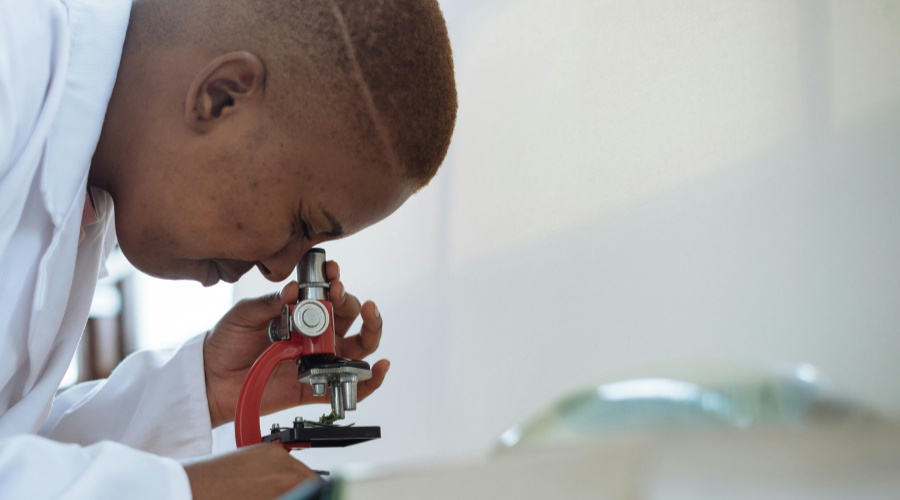You've seen the photos - glossy magazines showcasing models with flawless skin, flowing blonde locks, and skinny bodies as the height of beauty. For decades, society held Eurocentric features as the gold standard and if your natural looks deviated, you were labeled unattractive.
But beauty is not one-size-fits-all. Times have changed, and with the rise of social media, people are embracing diverse representations of beauty. Forget cookie-cutter conformity - today, it's about inclusivity. Beauty comes in different skin tones, body types, abilities, ages, and more.
You define your own beauty. Whether you rock a bald head or full beard as a woman, flaunt your curves and cellulite with pride, or decorate your body with vitiligo's unique pigmentation, you are beautiful. Let your true colors shine. The face of beauty has many facets - and you're gorgeous just the way you are.
The Rise and Fall of Eurocentric Beauty Standards
For decades, beauty standards celebrated a very narrow definition of attractiveness that favored European features. The ideal woman was thought to have fair skin, straight hair, a small nose, and a slender figure. These unrealistic standards left many women feeling like they didn’t measure up.
Thankfully, our culture’s views on beauty are evolving. We’re embracing a more inclusive vision that celebrates women of all shapes, sizes, skin tones, and hair textures. The rise of social media has allowed people to share images of what they find personally beautiful.
Influencers like Lizzo and Ashley Graham are redefining traditional beauty standards and encouraging women to love themselves as they are. Their messages of self-acceptance and body positivity have resonated with millions of people.
The Emergence of Diverse Representation in Fashion and Media
The beauty industry is finally waking up to what we’ve known all along - that beauty comes in many forms. For too long, magazines, TV shows, and fashion brands promoted a very narrow standard of beauty, typically featuring tall, thin, white women with European features. Those of us who didn’t fit that mold were made to feel like something was wrong with us.
But times are changing. Models of different body types, skin tones, and abilities are appearing in major campaigns. Plus-size and curvy models like Tess Holliday have graced the covers of magazines like Sports Illustrated and Cosmopolitan. Models Winnie Harlow and Madeline Stuart, who have vitiligo and Down syndrome, respectively, have walked the runways of major fashion shows.
The media is following suit. TV shows and movies are featuring more diverse casts and placing value on characters of all backgrounds. Children growing up today have role models that look like them, helping them realize their own beauty at a young age.
While the fashion and media industries still have a long way to go to fully represent people of all ethnicities, sizes, and abilities, the increasing inclusivity is a step in the right direction. The more we see models, actors, and public figures who reflect the diversity of real people, the more we will broaden our views of beauty and celebrate what makes each of us unique. Everybody is beautiful in their own way, so let’s keep advocating for a beauty standard that honors all women.

Celebrating All Skin Tones: The Growth of Inclusive Makeup Lines
The beauty industry is finally waking up to the fact that “nude” isn’t just light beige. Makeup lines are launching products for medium and deep skin tones, and influencers of all ethnicities are promoting self-love. The rise of social media has allowed people to find their tribe and celebrate what makes them uniquely beautiful.
You no longer have to feel like the odd one out or settle for a “close enough” foundation match. Brands like Fenty Beauty, NARS, MAC, and Lancome offer an array of shades to suit every skin tone. Popular beauty gurus on YouTube and Instagram show how to create stunning looks on deeper skin.
There’s no single standard of beauty anymore. Different cultures celebrate different physical traits, and inclusiveness is the new normal. Loving the skin you're in is a radical act of self-acceptance in a society that still favors European beauty ideals. But when you see your unique beauty reflected in the world around you, it becomes that much easier. Makeup is finally for everyone, and individuality is always in style.
Facial Hair Inclusion for Women
More and more, women are embracing their natural facial hair and body hair. Society's views on beauty are expanding to include all versions of femininity. For too long, women felt pressure to conform to narrow beauty standards that valued hairlessness and conformity. But times are changing.
Women like activist Harnaam Kaur proudly display their facial hair, helping to normalize body positivity and self-acceptance. Their message is clear: you don't need to look a certain way to feel beautiful.
Growing out body hair and facial hair is a personal choice. Some women feel empowered by embracing natural hair growth, while others prefer to remove it. There is no "right" way.
Whether you have peach fuzz or a full beard, your worth isn't defined by how much or how little hair you have. Focus on surrounding yourself with people who appreciate you as you are.
The media plays an important role in shaping cultural views of beauty and attractiveness. When they feature diverse representations of women, including those with facial hair and body hair, it helps to broaden society's perception of what is considered beautiful or feminine.
Slowly but surely, the face of beauty is changing to be more inclusive. There will always be critics, but their voices are fading into the background. You have the power to define your own beauty and write your own standards. Don't let anyone else's expectations hold you back from loving yourself fully. You are beautiful as you are.

The Future of Beauty: Embracing Uniqueness Over Conformity
The narrow beauty standards of the past are fading away. There is a growing acceptance that true beauty lies in our diversity and individuality. The future is bright as more people embrace their own unique qualities instead of striving to achieve some unrealistic societal ideal.
You likely know a few trailblazers who have inspired you with their confidence and self-love. Celebrities like Lizzo, Ashley Graham, and Harnaam Kaur have helped redefine traditional beauty standards through their dedication to body positivity. Their message is clear - you are perfect as you are.
Many women today are learning to appreciate their natural features that were once considered flaws. Excessive facial or body hair, for example, was seen as unattractive by past beauty standards. Now, some women proudly rock their mustache or choose not to shave, and they are celebrated for it. There is power in self-acceptance.
The younger generation, especially, is leading the charge in expanding our views of beauty. They know that attractiveness comes in all shapes, sizes, skin tones, abilities, and gender expressions. Beauty cannot be defined by a single ideal or look.
When you embrace your unique qualities, it gives others permission to do the same. Together, we are reshaping culture and promoting a more inclusive vision of beauty. There is no such thing as a perfect woman. Beauty comes in diversity - and that is worth celebrating. Our imperfections and quirks are what make us beautifully human. The future is bright, and beauty will be redefined by each and every one of us.
You know the old saying, "beauty is in the eye of the beholder?" Well it's true. There's no one-size-fits-all standard for beauty anymore. Beauty comes in all shapes, sizes, colors and styles. What matters most is that you feel comfortable and confident in your own skin.



